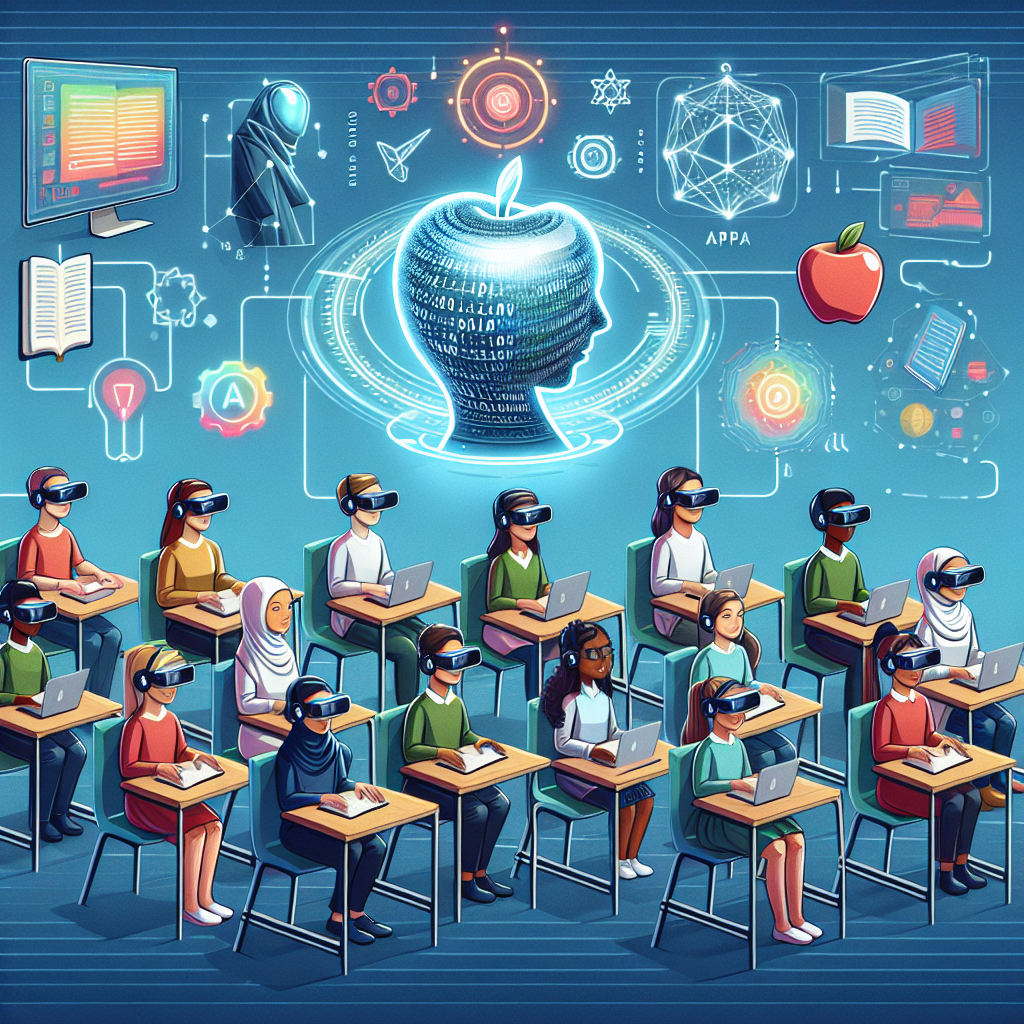Generative AI and Personalized Learning: Enhancing Education
Artificial intelligence (AI) has been making significant advancements in various fields, including education. Generative AI, in particular, has the potential to revolutionize the way students learn and educators teach. By creating personalized learning experiences tailored to individual students’ needs, generative AI can help enhance education and improve student outcomes.
What is Generative AI?
Generative AI refers to AI systems that have the ability to generate new content, such as images, text, or audio, that is indistinguishable from content created by humans. These systems use deep learning algorithms to analyze and understand patterns in data, and then generate new content based on those patterns.
One popular application of generative AI is in natural language processing, where AI systems can generate human-like text based on a given prompt. Another common application is in image generation, where AI systems can create realistic images of objects or scenes.
Generative AI in Education
In education, generative AI can be used to create personalized learning experiences for students. By analyzing students’ learning data, such as test scores, homework assignments, and engagement with learning materials, AI systems can identify patterns in students’ learning preferences and abilities. Based on these patterns, AI systems can generate customized learning materials, such as quizzes, exercises, and study guides, that are tailored to each student’s individual needs.
For example, if a student is struggling with a particular concept in math, generative AI can create additional practice problems specifically targeting that concept. If a student excels in a certain subject, AI systems can generate more advanced materials to challenge the student and ensure continued growth.
Personalized Learning
Personalized learning is a teaching approach that tailors instruction to individual students’ needs, interests, and abilities. By providing students with personalized learning experiences, educators can help students learn at their own pace and in a way that is most effective for them.
Generative AI can enhance personalized learning by automating the process of creating customized learning materials. Instead of teachers spending hours creating individualized lesson plans and assignments for each student, AI systems can generate personalized materials quickly and efficiently. This allows teachers to focus on providing students with support and guidance, while AI handles the more time-consuming task of creating customized content.
Benefits of Generative AI in Education
There are several benefits of using generative AI in education:
1. Personalized Learning: Generative AI can create personalized learning experiences tailored to each student’s individual needs, helping students learn more effectively and efficiently.
2. Increased Engagement: By providing students with customized learning materials that are relevant to their interests and abilities, generative AI can increase student engagement and motivation.
3. Improved Outcomes: Personalized learning has been shown to improve student outcomes, such as test scores and academic achievement. Generative AI can help educators implement personalized learning strategies more effectively.
4. Time Savings: By automating the process of creating personalized learning materials, generative AI can save educators time and allow them to focus on other aspects of teaching.
5. Scalability: Generative AI can create personalized learning materials for large numbers of students simultaneously, making it a scalable solution for educational institutions.
FAQs
Q: How does generative AI create personalized learning materials?
A: Generative AI analyzes students’ learning data to identify patterns in their learning preferences and abilities. Based on these patterns, AI systems can generate customized learning materials that are tailored to each student’s individual needs.
Q: Can generative AI replace teachers?
A: Generative AI is not meant to replace teachers, but rather to support them in creating personalized learning experiences for students. Teachers play a crucial role in providing students with support, guidance, and feedback, which AI systems cannot replace.
Q: Are there any ethical concerns with using generative AI in education?
A: As with any technology, there are ethical concerns associated with using generative AI in education. These concerns include issues related to data privacy, bias in AI algorithms, and the potential for AI systems to replace human judgment. It is important for educators to consider these ethical concerns when implementing generative AI in the classroom.
In conclusion, generative AI has the potential to enhance education by creating personalized learning experiences for students. By automating the process of creating customized learning materials, AI systems can help educators implement personalized learning strategies more effectively and efficiently. With the right safeguards in place, generative AI can revolutionize the way students learn and educators teach, ultimately leading to improved student outcomes and a more engaging educational experience.

